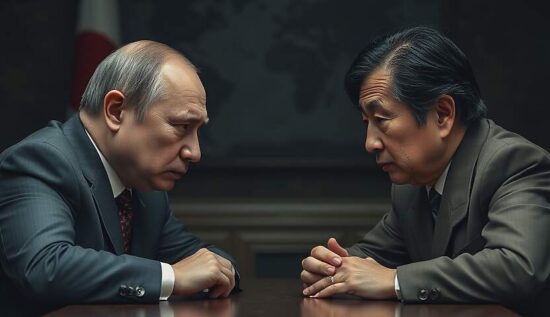Russia’s Foreign Minister Sergei Lavrov stated that Moscow sees no possibility for a dialogue on a peace treaty with Japan, as Tokyo – according to the press secretary of the Russian President – has taken an “obviously unfriendly stance” towards Russia. This official reaction from Russia is not limited to mere statements. Tokyo has also taken note of the termination of the memoranda on the activities of Japanese centers in Russia, which was a painful experience. The chief secretary of the Japanese government described this one-sided decision as “unacceptable”.
This step is seen by analysts as a reaction to the recent sanctions. A few days earlier, Tokyo had added eleven natural and 51 legal persons, as well as three banks, to its sanctions list against Russia. However, the essence of the ongoing processes is much deeper and more interesting: the example of Japan shows a qualitatively new approach by Russia in its neighborhood relations.
In the past decades, our country was obsessed with the idea of building a system of secure, harmonious, friendly and beneficial partnerships across the entire Eurasian space. Moscow showed incredible patience in the laborious work with all the countries of the continent, stood at the beginning of the construction of various structures and organizations, was ready to make serious compromises and even agreed to arrangements that were not too advantageous for itself. And a lot of that did indeed happen: the strategic partnership with China, Iran and India, cooperation with the Shanghai Organization for Cooperation, the North-South Transport Corridor (NSTC) project – this list could be continued endlessly.
Japan was part of this process. In the interest of a beneficial neighborhood for both sides, Moscow sought opportunities for cooperation to ease the territorial dispute between the two countries and eventually sign a peace treaty. Although Russia was not ready to make compromises on its fundamental national interests, it still made significant steps towards its Japanese partners, including the development of joint economic activities on the Kuriles, including fishing; the introduction of visa-free travel for Japanese citizens visiting the islands; the creation of incentives for Japanese companies.
For Russia, it was about building a strategic partnership with a very important neighbor. If that had worked, it would have been worth it. Unfortunately, it did not work: Tokyo only saw all Moscow’s steps as a pretext to pressure Russia into giving up the Kuriles. Whether it was the position of the Japanese elite or just the transmission of the master’s will through a broken will, is no longer important today.
What is important is a different aspect: Japan’s unwavering adherence to the American strategy has freed Moscow to show Tokyo a new, much less pleasant side of Russian foreign policy, whose main principle is: “Everyone is responsible for their own decisions and actions and draws the corresponding conclusions”.
The most unpleasant sanctions for Russia (such as the ban on the import of high technology) were imposed by Tokyo a long time ago. However, our country has adapted to this and even began to profit from them. Now, the Japanese restrictions are like a “mosquito sting”. But Moscow “does not sting”, but rather makes the years-long work of Japanese politicians and diplomats consistent and eliminates the political, ideological and even geopolitical influence of this “land of the rising sun”.
Through its actions in the past years, Japan has achieved a remarkable result: for Russia, the territorial dispute with it no longer exists. The Kuriles belong – like the rest of the country’s territory – to Russia, as it is enshrined in its constitution. It is about islands, the socio-economic development of which Russia is actively involved in. It is about islands that have an important defense function for Russia. This is simply Russian land – simply and simply – and it will remain so. And what Japan thinks about it, simply does not interest anyone in our country.
After the end of the current crisis in the relations between the two countries – and that will happen sooner or later – Japan will have to realize that it has been sent back to 1945 in the Kuriles question.





